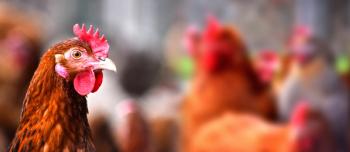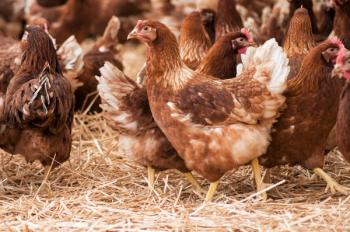
Humility goes long way when cases turn sour
If we maintain some degree of humility when things are looking good, then it is usually less painful to face the crowd when it all goes south.
My voice reflected incredulity and disappointment as I heard the report on the cow. I could only mutter, "She did?"
Charles E. Gardner DVM, mba, dipl. abvp
Ernest was reporting the outcome of my treatment of one of his cows. The report left me feeling deflated and stupid, with a dose of humility. In hindsight, humility is the emotion I should have demonstrated the day before.
Ernest called me the day prior and asked for a doctor to come out and examine a sick cow. I was the one scheduled to be in his area, so I put his name on my list. I was completing my first year in practice and had reached a point of feeling pretty confident about my skills. I had a student riding with me and naturally wanted to impress him. I also wanted to make a good impression on Ernest because he usually used another practice. Perhaps if things went really well, I thought, he would call us regularly.
Patient in trouble
After I arrived at the farm and introductions were made, Ernest led us to our patient. My hopes of making a good impression faded when I looked at her. She was severely underweight with sunken eyes and a depressed attitude. It would be hard to impress anyone with this animal. Ernest explained that his regular veterinarian had examined her several times during the past two weeks but could not determine the cause of her malaise.
Upon hearing that history, I brightened up a bit. Maybe I could still look good if I could at least make a definite diagnosis. I proceeded to examine her and found the familiar "ping" of a left displaced abomasum. She was also ketotic, as expected, but I found no other problems.
I informed Ernest of my findings and then discussed treatment options. I explained that surgery was usually indicated, but due to her poor condition the odds for a satisfactory outcome were not good. Ernest pondered for a moment or two and then said, "Well, she's not worth anything the way she is. Let's take a chance. I want you to do the surgery, but first I have another cow that is down with milk fever. You'd better take care of her before you operate on this one."
Ernest showed us the second cow, which had delivered her calf the previous day, and who now was lying in a normal position. I examined her and found her moderately depressed with cold ears but otherwise OK. Ernest stated that she had been unable to rise just before I arrived at the farm. I took his word on that and proceeded to give her two bottles of our standard calcium product. She responded well, with the trembling and brightening we like to see. Her heart remained steady while I administered the calcium. We rolled her onto her other side and left her resting comfortably in a deep bed of straw.
Correcting the problem
I decided to use a standing procedure to correct the displacement. Things did not go well. Halfway through the surgery, the cow went down. I finished with her in that position and then gave her fluids, dextrose and antibiotics. I explained to Ernest that the prognosis was poor. He replied that he understood and thanked me for trying. I told him I would stop back the next day, and proceeded on to my next call.
The next morning, my student and I pulled into Ernest's driveway only to find him tending to his flower bed at the front of the barn. It was a bright, sunny day, and, for some reason, I felt optimistic. Maybe the fluids had really helped the surgery patient, and we would find her up and nibbling on some hay.
We got out of the truck and exchanged greetings with Ernest, and then I asked the question, "How's she doing?"
"I'm afraid the cow you operated on died late yesterday afternoon," he replied. My face dropped a bit. "I'm sorry to hear that. I really hoped she would be able to turn around."
He replied: "Well, at least you tried. I know she was really too far gone. I'm not blaming you that she didn't make it."
After some additional discussion, I said goodbye and started back to my truck.
"The other one died, too," the client's voice followed. It took a few minutes to comprehend those last words from Ernest, spoken softly and without anger.
As the meaning finally penetrated, I turned back to him and replied as I indicated at the beginning of this column. Amazingly, Ernest did not blame me for the second cow dying, either. He seemed to just accept it as fate.
What's wrong?
So what had I done wrong? Although I had not bad-mouthed the other doctor who had been examining the cow with the displacement, I had demonstrated a certain degree of cockiness that I think was inappropriate. I certainly should have rechecked the milk fever cow before leaving the farm.
One of the unique characteristics of farm call practice is that we usually do everything with the owner or his agent present. Spouses, employees, children and neighbors sometimes witness our work as well. Things have a way of going astray just when we least expect it. If we maintain some degree of humility when things are looking good, then it is usually less painful to face the crowd when it all goes south.
By the way, Ernest remained loyal to his original veterinarian. Our practice was never invited back.
Newsletter
From exam room tips to practice management insights, get trusted veterinary news delivered straight to your inbox—subscribe to dvm360.




